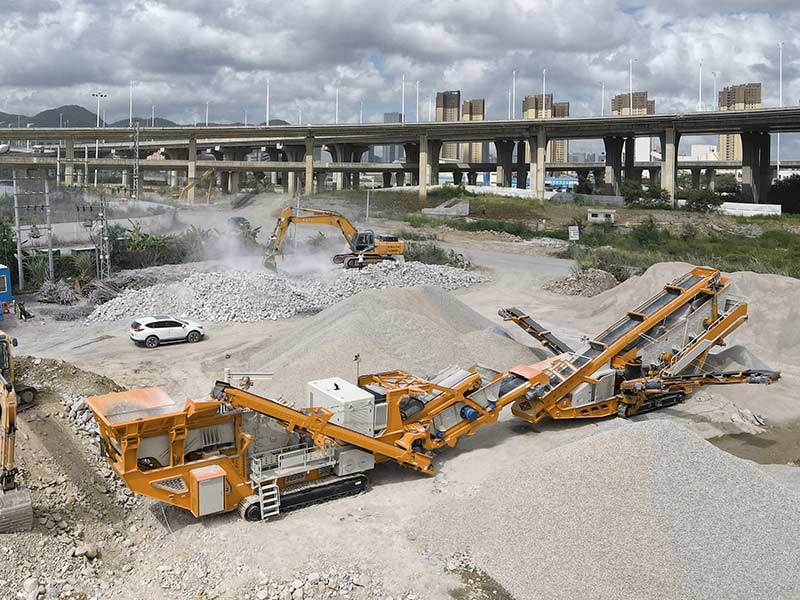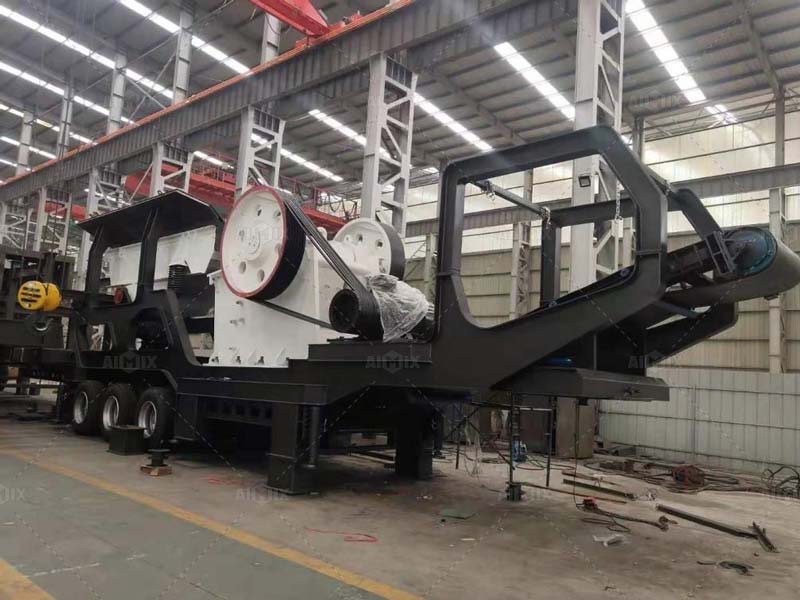When investing in a stone crusher, understanding the key factors that influence stone crusher prices is essential for making an informed decision. With a wide range of crusher plants, portable stone crushers, and specialized equipment such as concrete crushers available, it’s crucial to evaluate the total cost of ownership and long-term value. This article explores the various factors affecting stone crusher prices(precio de chancadora de piedra) and offers advice on how to get the best value for your investment.

Factors That Affect Stone Crusher Prices
1. Type of Crusher Plant
The type of crusher you choose significantly impacts the overall cost. Stone crushers come in various configurations, each designed for specific tasks:
- Jaw Crushers: Often the most affordable option, jaw crushers are ideal for primary crushing. They are commonly used in mining, recycling, and aggregate production.
- Impact Crushers: Slightly more expensive than jaw crushers, impact crushers are designed for secondary and tertiary crushing, delivering high efficiency in breaking down softer materials.
- Cone Crushers: Known for their superior performance and ability to crush harder materials, cone crushers are typically higher-priced options. They offer greater output and are ideal for larger-scale operations.
- Portable Stone Crushers: These crushers are designed for mobility and flexibility on job sites. While they may have a higher initial cost due to their mobility features, they reduce transportation expenses and setup times.
2. Size and Capacity of the Crusher
The size and processing capacity of the crusher plant(planta chancadora) directly correlate with its price. Larger crushers with higher throughput capacities are more expensive, but they are designed for high-volume production, making them essential for large-scale operations. Conversely, smaller crushers with lower capacity are more affordable but may not be suitable for high-demand applications.
- Small Crushers: Ideal for low-volume operations or construction projects with limited space, small crushers are budget-friendly but may need to be used in conjunction with other machines for larger-scale production.
- Large Crushers: Used in industrial and heavy-duty applications, large crushers can handle significant amounts of material. They come with a higher price tag but offer long-term savings due to their higher production efficiency.
3. Material to Be Crushed
The type of material you are planning to crush is another important factor. Harder and more abrasive materials like granite or basalt require crushers that are more robust and durable, which naturally increases the cost. For instance, a concrete crusher designed to break down tough materials like reinforced concrete is generally more expensive than a crusher meant for softer aggregates like limestone.
- Granite and Basalt Crushers: These materials demand high-power crushers like cone crushers, which can withstand the forces required to crush hard stones.
- Limestone and Sandstone Crushers: These can be crushed using more affordable machines such as jaw crushers or impact crushers, as the material is softer and easier to break down.
4. Brand and Manufacturer
The manufacturer’s reputation plays a crucial role in determining the price of stone crushers. Established brands with a proven track record of producing reliable, durable equipment tend to charge higher prices, but their crushers often come with excellent after-sales service, warranty, and technical support. Lesser-known or generic brands might offer lower prices but could come with risks, such as subpar quality or limited customer service.
- Trusted Brands: Well-known brands like AIMIX, Metso, and Sandvik often provide high-quality crushers and offer extensive warranties and maintenance packages.
- Lesser-Known Brands: These may offer lower prices, but they could have fewer customer support options and potentially shorter lifespans for the machines.
5. Customization and Special Features
Stone crushers can be customized to meet specific requirements, and additional features can raise the price. For example, crushers equipped with advanced automation, fuel-efficient systems, or dust control mechanisms will cost more, but they can enhance efficiency and safety at the job site. Customizable options such as mobility (portable stone crusher(trituradora de piedra portatil)) or integrated concrete crusher functionality can also add to the price.
- Automation Features: Crushers with built-in automation systems, such as real-time performance monitoring or automatic adjustments, are more expensive but can improve overall performance and reduce downtime.
- Portable Crushers: A portable stone crusher allows for flexibility in job site location, making it a valuable investment for projects requiring mobility but comes at a higher upfront cost.

How to Get the Best Value for Your Investment
1. Compare Multiple Suppliers
To ensure you get the best price for your stone crusher, it’s essential to compare multiple suppliers. Request quotes from different manufacturers, considering not only the upfront cost but also factors like maintenance, availability of spare parts, and after-sales support. Often, suppliers offer discounts on bulk purchases or provide better pricing for long-term contracts, so be sure to ask about these options.
2. Evaluate Total Cost of Ownership
While stone crusher prices may vary, it’s important to consider the total cost of ownership, which includes installation, operation, maintenance, and any additional costs over the equipment’s lifetime. A more expensive crusher might offer better durability and require less frequent maintenance, saving you money in the long run. Conversely, a cheaper model might have a lower initial cost but result in higher repair and operational costs.
- Maintenance and Spare Parts: Consider the cost of routine maintenance and spare parts. A machine that requires frequent repairs can quickly become more expensive than a higher-priced model that operates efficiently with minimal maintenance.
3. Invest in Used Equipment
If you’re on a budget, purchasing a used stone crusher plant might be a cost-effective option. Many used crushers are in good condition, and you can often find them at a significantly lower price than new models. However, it’s important to inspect the machine thoroughly or have it checked by an expert to ensure it’s still functional and doesn’t require costly repairs.
4. Look for Energy-Efficient Models
Investing in an energy-efficient stone crusher(trituradora de rocas) can lower your operating costs significantly. Crushers designed to minimize energy consumption are more environmentally friendly and can reduce your long-term expenses, especially in high-output operations.
5. Consider Mobile Crushers for Flexibility
If your projects require mobility and flexibility, consider investing in a portable stone crusher. Though the initial investment may be higher, the ability to move the crusher directly to the material site reduces transportation costs and boosts productivity. Additionally, portable crushers often come with features that make them more efficient in handling different material types.
Conclusion
Understanding the factors that affect stone crusher prices can help you make a more informed decision and ensure that you get the best value for your investment. Whether you’re choosing a crusher for a small-scale project or a large mining operation, consider the type of material, capacity, and brand to select the best equipment for your needs. Always evaluate the total cost of ownership, compare quotes from different suppliers, and look for energy-efficient models or used equipment to optimize your investment. By doing so, you can ensure that your stone crusher delivers long-term performance and cost savings for your project.
